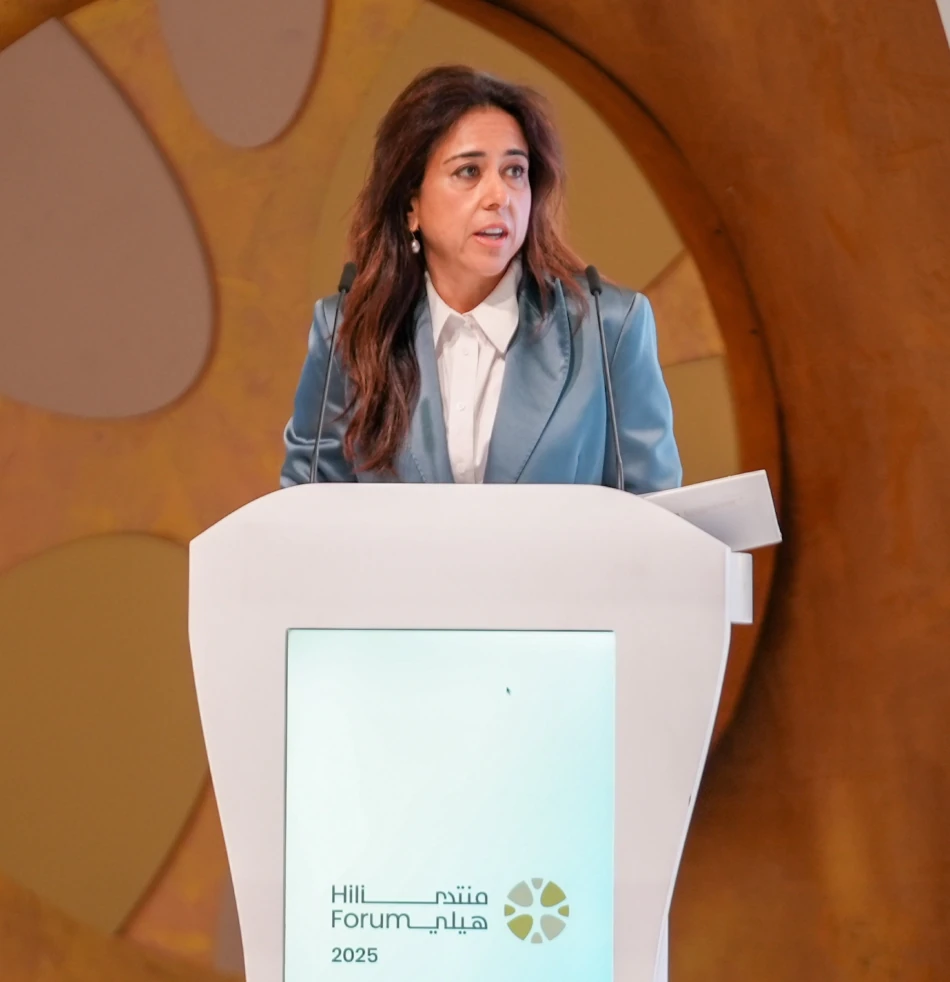
Lana Nasibeh: Palestine Pivotal to Achieving Regional Peace, Annexation of Palestinian Territories Unacceptable
**UAE Draws Red Line on Palestinian Annexation While Defending Abraham Accords Framework**
The United Arab Emirates has reinforced its position that Palestinian territorial annexation remains a non-negotiable red line, even as it champions the Abraham Accords as a foundation for regional coexistence. Speaking at the second Hili Forum, UAE Assistant Foreign Minister for Political Affairs Lana Nusseibeh emphasized that sustainable peace requires collective commitment to a negotiated two-state solution, signaling the Gulf nation's delicate balancing act between normalization with Israel and Palestinian solidarity.
Global Order Under Strain
Nusseibeh's remarks came within a broader critique of the international system's current fragility. She argued that the foundational assumptions of the post-World War II order have crumbled, leaving institutions weakened and rules routinely violated. "Standing still in times of uncertainty does not bring security—it reveals weakness and allows others to make decisions on your behalf," she stated, advocating for a comprehensive reset of global governance structures.
This assessment reflects growing concerns among middle powers like the UAE that traditional multilateral frameworks—from the UN Security Council to international law enforcement mechanisms—have proven inadequate for addressing contemporary crises, from the war in Ukraine to escalating Middle East tensions.
Abraham Accords Under Pressure
The UAE's reaffirmation of Palestinian territorial integrity as a red line comes at a critical juncture for the Abraham Accords, the 2020 normalization agreements between Israel and several Arab states. While the accords were initially celebrated as a breakthrough in regional diplomacy, they have faced mounting scrutiny amid renewed Israeli-Palestinian violence and settlement expansion.
Balancing Normalization and Palestinian Rights
Nusseibeh's comments reveal the UAE's strategy to maintain its relationship with Israel while preserving credibility on Palestinian issues. By framing the Abraham Accords as promoting "coexistence and integration," Abu Dhabi positions normalization not as abandonment of Palestinian causes, but as a pathway to eventual comprehensive peace.
This approach mirrors similar positions taken by other Abraham Accords signatories, including Bahrain and Morocco, who have sought to balance economic and security benefits from Israeli cooperation against domestic and regional pressure to support Palestinian statehood.
Regional Implications
The UAE's stance carries significant weight given its emergence as a key Middle Eastern diplomatic player. Unlike traditional Arab powerhouses Egypt and Saudi Arabia—which have faced economic constraints and internal challenges—the UAE has leveraged its economic diversification and pragmatic foreign policy to become an influential mediator.
Saudi Arabia's Calculus
The timing of these remarks is particularly noteworthy as Saudi Arabia continues to weigh potential normalization with Israel. Riyadh has consistently indicated that any agreement would require meaningful progress on Palestinian statehood—a position that aligns with the UAE's red line on annexation while keeping diplomatic doors open.
The UAE's approach may serve as a template for how Arab states can maintain normalization benefits while preserving Palestinian solidarity, potentially influencing Saudi decision-making on future agreements.
International System Reset
Beyond regional dynamics, Nusseibeh's call for global order restructuring reflects broader frustrations with existing international institutions. The UAE's criticism echoes similar sentiments from other middle powers who feel marginalized by great power competition between the United States, China, and Russia.
This perspective positions the UAE alongside countries like Singapore, South Korea, and Turkey, which have advocated for reformed multilateral institutions that better represent contemporary global power distributions and address 21st-century challenges more effectively.
Looking Forward
The UAE's continued emphasis on negotiated solutions rather than unilateral actions suggests Abu Dhabi views itself as a stabilizing force in an increasingly volatile region. By maintaining both Israeli partnerships and Palestinian advocacy, the Emirates seeks to preserve flexibility while the broader Middle East landscape continues evolving.
This balanced approach may prove crucial as regional powers navigate between competing pressures from great power rivals, domestic constituencies, and international partners—making the UAE's diplomatic positioning a key indicator of broader Middle Eastern trends.
Most Viewed News

 Sara Khaled
Sara Khaled






